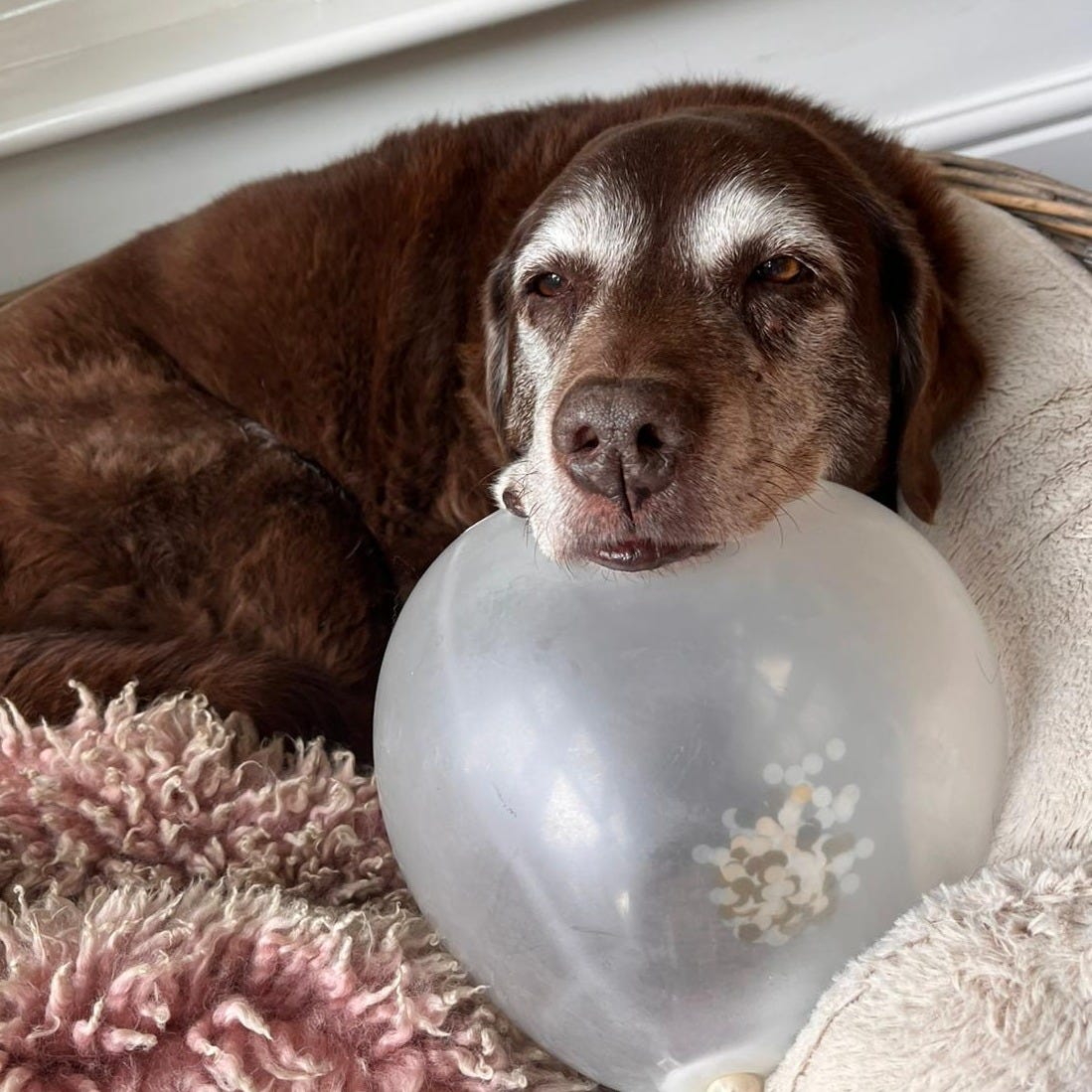My dog is old. He’ll be 98 in dog years this July. I decided recently to give his life a bit of a ‘glow up’ - new collar, a comfy bed in the sitting room as well as in the kitchen. Yet most of the time my beloved pooch prefers to sleep on a rattan rug.
Why would he choose a rough old rug most of the time over my ridiculously comfy dog bed?
We may not understand other people’s (or dog’s) actions, because looking from the outside, the choices seem crazy.
I hear that confusion a lot in the work that I do with those affected by a loved one’s addiction:
Why would they choose to drink when it is causing so much harm?
Why would they choose to betray me when all I have ever done is try to be a loving supportive partner`?
Something I didn’t tell you is that the rug is in my husband’s office and my dog is pretty blind and deaf at this stage. He often barks out, in fear of where we are, but the rattan rug in my husband’s office is a place of safety. He can smell my husband in that room more than anywhere else downstairs.
He chooses the sense of safety over comfort, because that rug offers proximity to a relationship which offers a sense of safety. That is more important than the comfort of the rug.
Yet my clients often will try and ‘rescue’ their loved ones from ‘lying on the rattan rug’
Of course, addiction and compulsive problematic behaviour is more dangerous than lying on a rattan rug, but it doesn’t feel that way to the person engaging in that behaviour .
Such behaviours come with problematic fallout. It is the fallout which causes the loved ones have come to believe that they HAVE to rescue the situation.
What we are really doing in this situation is rescuing ourselves from our own fear. The fear of where things will escalate to, of how much damage will be done. These are absolutely valid fears, grounded in experience.
Yet, when we focus on rescuing someone else, we end up so much in their space that their time and energy can be taken up reacting to our rescuing rather than dealing with their own consequences.
What contributes to this is our mind reading. We begin to believe we know how they feel. I hear this time and again, ‘I don’t want them to feel embarrassed’, or ‘I don’t want them to feel so lonely’. We place our own emotions about how we feel and assume that they feel the same way.
How could you?
“How could you want to listen to people’s problems all day?
I would hate that!”
I am not you.
“Are you going to eat that WHOLE slice of cake.
I couldn’t manage that!”
I am not you.
“You’re so funny putting rollers in your hair
I’d never do that!”
I am not you.
“I just wish for you all the things that
I never had”.
I
Am not
Can not
Would not
Should not
Shall not
Be
You.
Both of these things contribute to the other person feeling controlled, squeezed out of their own lives, unable to have their own experience… and so their defensiveness increases.
But NOT rescuing someone when you can see the fallout of their behaviour is scary.
It might mean the worst thing possible, abandonment, escalation or losing them entirely - and this is what many fear most.
You can try to rescue the situation, as I did by buying my dog a comfy new bed. Of course, it is and feels like a caring thing to do. You might up your game, trying to provide the comfiest bed in the land, but the real issue to address is the relationship that someone has with something that makes them choose the rattan rug.
And only they can address that.
So what can you do instead?
Set clear boundaries for your own safety - and maintain them even when exhausted or tempted to "let it slide just this once." These aren't punishments but necessary protections for your wellbeing.
Offer support they can choose - rather than imposed solutions. This might look like saying "I'm here when you're ready to talk about getting help" instead of arranging treatment without their input.
Focus on your own responses - You can't control their choices, but you can work on your own patterns of rescuing or controlling. Look at how your own behaviour may actually feel untrustworthy to them.
Recognise that their relationship with this thing is deeper than your understanding - it is not a reflection of how they feel about you and it is up to them to navigate. The less you rescue, the more the fallout of their behaviour will land in their lap
Get support - dealing with this is not easy and prone to many steps back as well as forward.
On that note… my programme is available any time and guided sessions begin again in June. To find out more hit reply.
That’s it for now,
‘Til next time.
Jacky ✨





